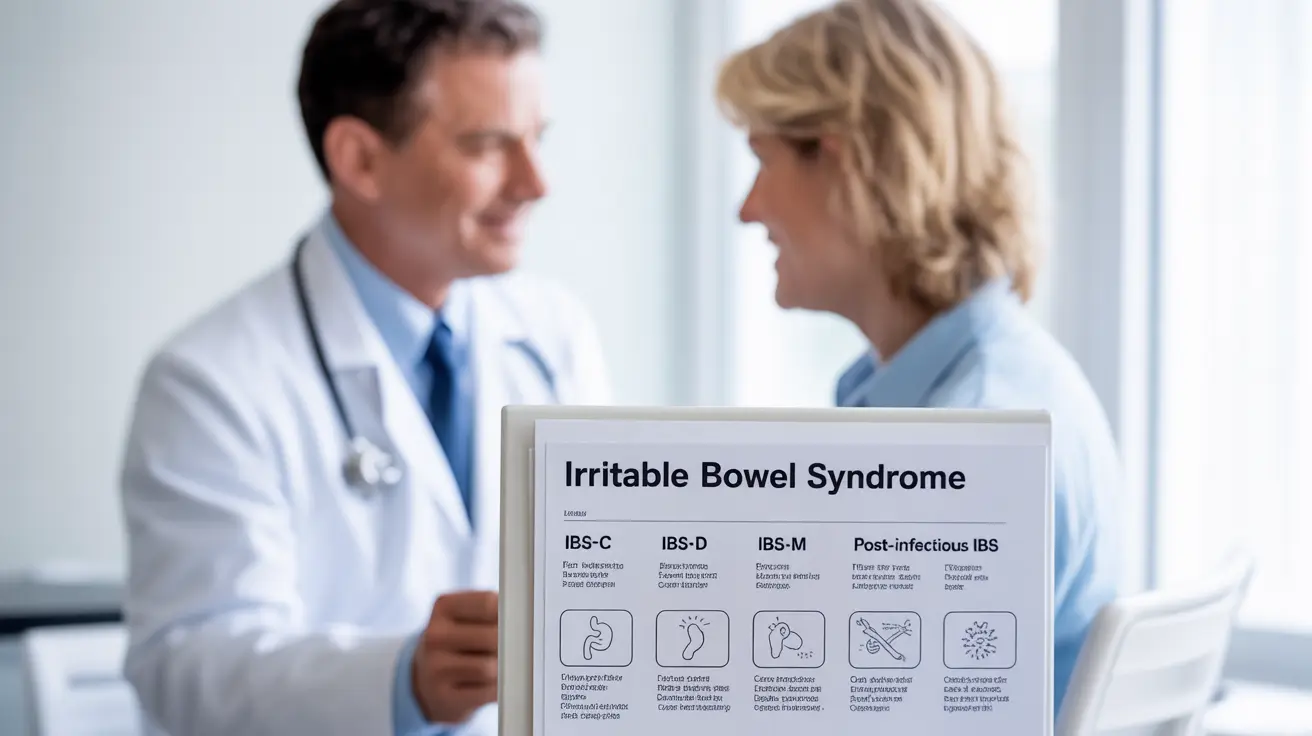Living with irritable bowel syndrome (IBS) can be challenging, especially when symptoms vary significantly from person to person. Understanding the different types of IBS is crucial for proper diagnosis and effective treatment. This comprehensive guide explores the distinct varieties of IBS and their unique characteristics to help you better manage your condition.
Whether you're experiencing persistent constipation, frequent diarrhea, or a mix of both, identifying your specific IBS type can be the first step toward finding relief. Let's dive into the various forms of IBS and learn how each type affects the body differently.
The Main Types of IBS
Medical professionals classify IBS into several distinct categories based on predominant bowel habits and symptoms. Each type requires a different approach to management and treatment.
IBS with Constipation (IBS-C)
IBS-C is characterized by infrequent bowel movements and difficulty passing stools. Common symptoms include:
- Fewer than three bowel movements per week
- Hard or lumpy stools
- Straining during bowel movements
- Bloating and abdominal discomfort
Treatment typically focuses on increasing fiber intake, staying hydrated, and possibly using specific medications designed for IBS-C.
IBS with Diarrhea (IBS-D)
This type of IBS involves frequent loose stools and urgent bowel movements. Key characteristics include:
- More than three bowel movements per day
- Loose, watery stools
- Sudden urges to use the bathroom
- Abdominal cramping
Management often involves dietary modifications, anti-diarrheal medications, and stress reduction techniques.
Mixed IBS (IBS-M)
IBS-M presents with alternating patterns of constipation and diarrhea. This type can be particularly challenging to manage due to its unpredictable nature. Symptoms may switch between:
- Periods of constipation followed by diarrhea
- Varying stool consistency
- Fluctuating abdominal pain
- Irregular bowel habits
Post-Infectious IBS
This distinct form of IBS develops after a gastrointestinal infection. Understanding its unique characteristics is essential for proper treatment:
- Symptoms begin after a bacterial or viral infection
- May improve over time without treatment
- Can persist for months or years
- Often responds well to probiotics
Managing Different IBS Types
Success in managing IBS often depends on tailoring treatments to your specific type. Key management strategies include:
- Keeping a detailed symptom diary
- Working with healthcare providers to develop targeted treatment plans
- Making appropriate dietary modifications
- Implementing stress management techniques
- Regular exercise and physical activity
Frequently Asked Questions
What are the different types of irritable bowel syndrome (IBS) and how do their symptoms differ? IBS comes in four main types: IBS-C (constipation-predominant), IBS-D (diarrhea-predominant), IBS-M (mixed type with alternating symptoms), and post-infectious IBS. Each type has distinct symptoms ranging from infrequent, hard stools in IBS-C to frequent, loose stools in IBS-D.
How is IBS with constipation (IBS-C) diagnosed and treated compared to IBS with diarrhea (IBS-D)? IBS-C is diagnosed when patients experience hard stools at least 25% of the time and loose stools less than 25% of the time. Treatment focuses on fiber supplementation and osmotic laxatives. IBS-D diagnosis involves loose stools at least 25% of the time and is treated with anti-diarrheal medications and dietary modifications.
What causes mixed-type IBS (IBS-M), and how can its alternating constipation and diarrhea be managed? IBS-M results from irregular gut motility and sensitivity. Management involves identifying trigger foods, maintaining regular meal times, and using specific medications during constipation or diarrhea phases. Stress management is particularly important for this type.
What is post-infectious IBS, and how does it develop after a gastrointestinal infection? Post-infectious IBS develops following a bacterial or viral gastrointestinal infection. The infection can alter gut bacteria balance and increase intestinal sensitivity, leading to IBS symptoms. Treatment focuses on restoring healthy gut bacteria and managing specific symptoms.
How can understanding my IBS type help in choosing the right diet and lifestyle changes to reduce symptoms? Knowing your IBS type helps target specific dietary triggers and appropriate lifestyle modifications. For example, IBS-C patients might benefit from increased fiber, while IBS-D patients may need to avoid certain FODMAP foods. This knowledge enables more effective symptom management and treatment selection.




